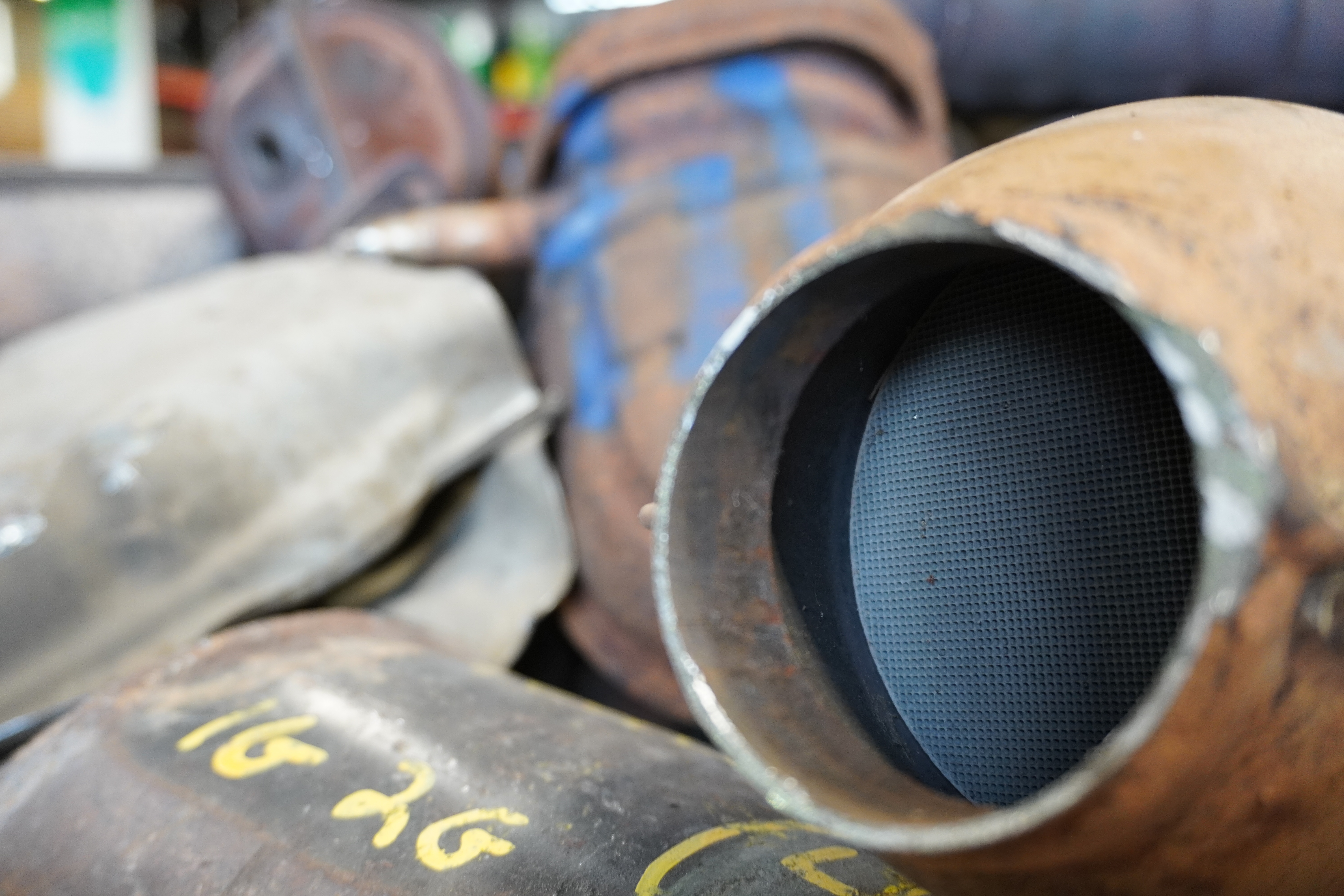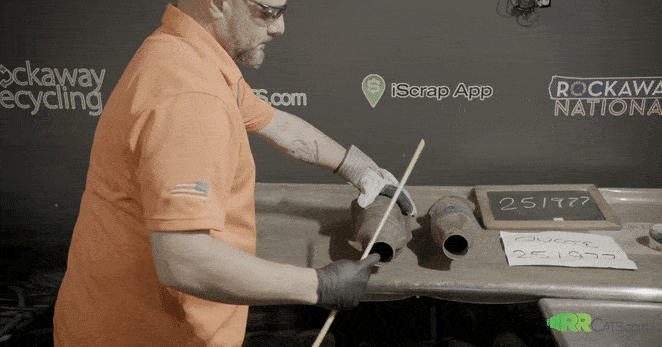Maximizing Profit: What’s the Worth of Your Catalytic Converter?
Posted: August 29, 2024
 Catalytic converters are essential for reducing vehicle emissions and hold significant value in the scrap metal market. With precious metals like platinum, palladium, and rhodium inside, these components can offer substantial financial returns. To maximize your profit when scrapping a catalytic converter, it’s essential to understand its worth, how to prepare it properly, and how to find the best deals. In this comprehensive guide, we’ll explore factors affecting catalytic converter prices, provide tips for preparing your converters for scrap, and offer advice on securing the best possible price.
Catalytic converters are essential for reducing vehicle emissions and hold significant value in the scrap metal market. With precious metals like platinum, palladium, and rhodium inside, these components can offer substantial financial returns. To maximize your profit when scrapping a catalytic converter, it’s essential to understand its worth, how to prepare it properly, and how to find the best deals. In this comprehensive guide, we’ll explore factors affecting catalytic converter prices, provide tips for preparing your converters for scrap, and offer advice on securing the best possible price.
TEXT FOR QUOTE
Understanding Catalytic Converters
What Are Catalytic Converters?
Catalytic converters are devices in vehicles designed to reduce harmful emissions. They use precious metals such as platinum, palladium, and rhodium to facilitate chemical reactions that convert toxic gases into less harmful substances.
Why Are They Valuable?
The value of catalytic converters comes from the precious metals they contain. As these metals are highly sought after in various industries, the value of a catalytic converter can vary depending on the market prices of platinum, palladium, and rhodium. The demand for these metals in global markets significantly influences the scrap value of converters.
 Factors For Scrap Catalytic Converter Prices
Factors For Scrap Catalytic Converter Prices
Type of Vehicle
The vehicle from which a catalytic converter originates plays a significant role in its value. Converters from luxury or high-performance vehicles generally contain more precious metals and are thus worth more. In contrast, converters from older or standard models may be less valuable.
Condition
The condition of the catalytic converter affects its scrap value. A damaged or deteriorated converter may fetch a lower price, especially if the internal honeycomb structure is compromised.
Metal Market Prices
The prices of platinum, palladium, and rhodium fluctuate based on global market conditions. As these metal prices rise and fall, the prices of catalytic converters move with them.
Regulations and Market Demand
Environmental regulations and market demand also impact catalytic converter prices. States with stricter emission laws can affect the availability and value of locally sourced converters, while increasing global demand for recycled metals can drive up prices.
What Are Some Common Converter Values?
Catalytic converters vary widely in value based on the make, model, and type of vehicle they come from. Here are some ballpark figures for converters from popular vehicle models:
- Toyota is one of the most well-categorized brands in terms of serial numbers. Due to its wide range of vehicles, these are so varied that they can be further categorized as exotic or foreign, large, or XL.
- Ford: Often called “Torpedo Cats,” these are larger and found on various Ford Trucks. Their prices vary wildly depending on the model, so send us the whole 11-digit serial number so we can accurately quote you.
- Honda: They are classified based on the type of O2 sensors they have and how they physically sit on the converter—slant or straight. They often don’t have serial numbers, so pinpointing a price without accurate photos can be hard.
- Chevrolet: These Cats are often called “Flow Cats”. Their serial numbers can be found on the corners/lips of the casing. These are typically lower than other domestic Cats from Ford and the like.
Finding The Best Prices For Your Catalytic Converters
Be cautious of significantly high or low quotes, which may indicate inaccurate assessments or potential scams. Reputable buyers, like RRCats, offer reliable pricing and are known for accurately assessing catalytic converters based on their serial numbers and market value.
Selling them to specialized scrap yards can often get you paid more than selling them to local auto shops, which may undervalue the precious metal content. To maximize your profit, work with reputable buyers who can correctly source and identify the material inside and the type of converter you may have.
Best Practices for Selling Your Catalytic Converter
- Know Your Converter—Research the year, make, and model of the vehicle your converter came from. This information helps you obtain accurate quotes and a fair price. Familiarize yourself with any serial numbers and take pictures of them. Be prepared to provide this information to buyers.
- Avoid Common Mistakes—Don’t remove the honeycomb from your catalytic converter, which can impact its value. Instead, keep it intact for accurate assessment. Also, the exhaust pipes should be cut off to simplify the process for the scrap yard.
- Compare Quotes—Get quotes from multiple scrap yards and compare them. Look for discrepancies in pricing and be cautious of offers that seem unusually high or low.
Using RRCats for Accurate Pricing
For a hassle-free experience, consider using RRCats. Send us photos and serial numbers of your catalytic converter so we can receive a quote within one business day. If you like the offer, you can ship your converter directly to them for a straightforward transaction.







